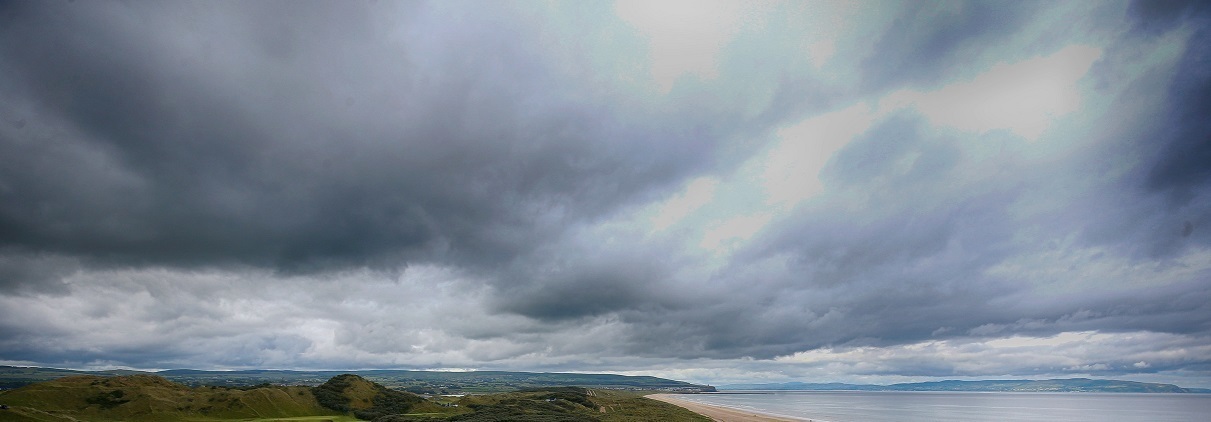In his most recent article for The Detail, Londonderry/Derry based commentator Paul Gosling looks at the impact of Brexit on businesses.
An important document was published last week. It gained less publicity than the guidance issued by the UK Government on how to prepare if the UK leaves the EU with no deal.
Deserving more focus than it received, the report contained the results of a survey conducted for AIB bank, owners of First Trust in the north. It found that 49% of Northern Ireland firms with investment plans had either put these on hold, or cancelled them.
This is very clear evidence of the actual harm Brexit is already doing to Northern Ireland. Put this alongside the Treasury’s warnings that NI is set to be one of the two worst affected UK regions from a potential ‘no deal’ Brexit and that the UK as a whole would suffer a 7.7% hit to potential economic activity over the next 15 years and the clouds of economic pessimism grow darker.
The AIB’s Brexit Sentiment Index reports that 61% of NI businesses expect to be damaged by leaving the EU. A year ago that figure was 50%, demonstrating that the nearer we get to the March 29, 2019 leaving date, the greater the fear.
We should not be surprised. A few weeks ago, accountancy and consultancy firm EY reported there had been a 54% reduction in new foreign direct investment coming into Northern Ireland last year. In Great Britain, there had merely been a decline in the growth of investment. The combination of the expectation of the Brexit impact on NI and the lack of a functioning Assembly constituted a nasty double whammy.
Border areas are particularly vulnerable. The sub-region poised for the worst damage is the north west, which is already starved of investment, especially in infrastructure and skills. The result is the highest unemployment rate in NI, a startlingly low adult employment rate of just 56.8% and what the statistics suggest is the lowest productivity in the UK.
Examples are emerging of the practical damage to future investment that Brexit is causing to the sub-region. The City of Derry Airport has been struggling for several years, with a worsening situation as a result of Ryanair focusing on Belfast and reducing flights into and out of Derry. A proposed aircraft maintenance and repair operation based at City of Derry Airport was supposed to be a lifeline.
But that operation will not now go ahead. Derry City and Strabane Council and the City of Derry Airport referred inquiries to Invest NI, which confirmed that investors looking to open an aircraft maintenance and repair operation at City of Derry Airport had pulled out. Politicians close to the project are clear that it was abandoned because the intended operators decided that the facility was only practical if located within the EU.
While some investment has been abandoned because of Brexit, the lack of certainty around what type of deal, if any, will be in place when we leave means it is extraordinarily difficult for businesses to plan. AIB’s survey found that a mere 5% of businesses in NI have a Brexit business plan in place. This is understandable when most firms have little understanding of what they would be planning for.
It is a similar situation for charities receiving EU Peace Programme funds. The UK government and the European Commission had indicated that they wanted a Peace programme to continue beyond Brexit, allowing schemes focusing on reconciliation and healing to carry on. But if there is no Brexit deal, will Peace funding end? The UK ‘no deal’ guidance is so far quiet on the matter.
When David Lidington – Cabinet Office minister and effectively Theresa May’s deputy – visited Derry last week he was unable to provide any promise that the highly valued Peace programmes would continue beyond the expiry of Peace IV in 2020. This makes it extremely difficult for charities heavily engaged in the Peace programmes to plan ahead or invest for the future.
Charities, like businesses, are worried about the future.
- Paul Gosling is a freelance journalist, commentator and author, and 'Brexit expert' for the Holywell Trust charity. His books include 'The Fall of the Ethical Bank' and 'Abuse of Trust', which he co-wrote with Mark D'Arcy.
 By
By
